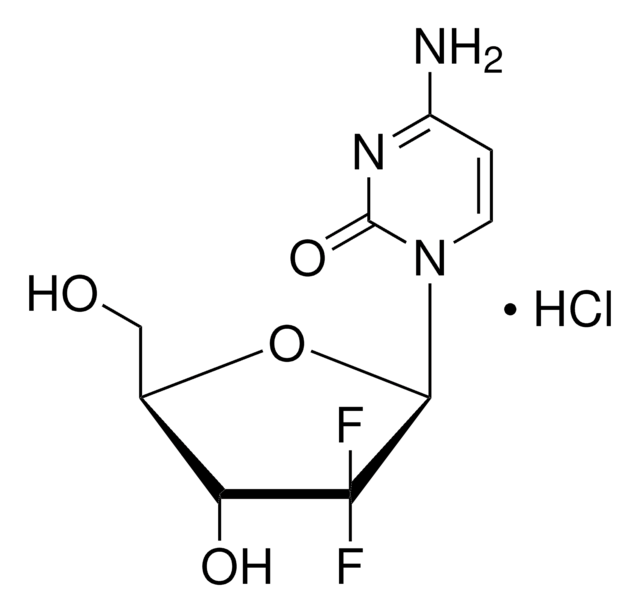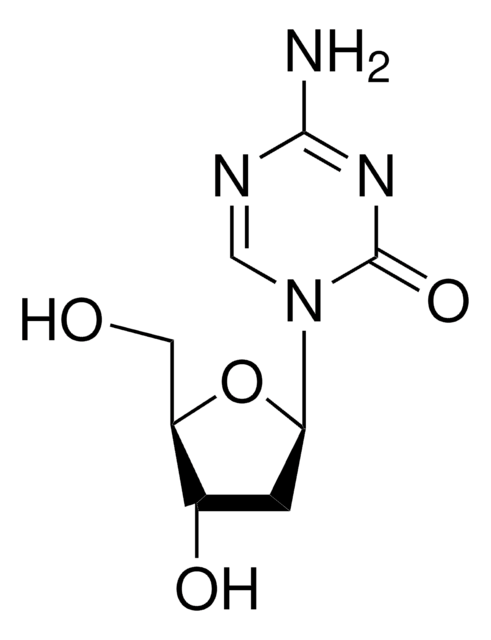H0292
HIV-1 Tat Peptide
≥97% (HPLC), lyophilized powder
About This Item
Recommended Products
product name
HIV-1 Tat Protein (47-57),
biological source
synthetic
Quality Level
form
lyophilized powder
solubility
deionized water: soluble
shipped in
dry ice
storage temp.
−20°C
SMILES string
NCCCC[C@H](NC(=O)[C@H](CCCNC(N)=N)NC(=O)CNC(=O)[C@@H](N)Cc1ccc(O)cc1)C(=O)N[C@@H](CCCCN)C(=O)N[C@@H](CCCNC(N)=N)C(=O)N[C@@H](CCCNC(N)=N)C(=O)N[C@@H](CCC(N)=O)C(=O)N[C@@H](CCCNC(N)=N)C(=O)N[C@@H](CCCNC(N)=N)C(=O)N[C@@H](CCCNC(N)=N)C(O)=O
InChI
1S/C64H118N32O14/c65-25-3-1-11-39(89-50(101)38(13-5-27-81-59(69)70)88-48(99)34-87-49(100)37(67)33-35-19-21-36(97)22-20-35)51(102)90-40(12-2-4-26-66)52(103)91-41(14-6-28-82-60(71)72)53(104)92-43(16-8-30-84-62(75)76)55(106)95-45(23-24-47(68)98)57(108)94-42(15-7-29-83-61(73)74)54(105)93-44(17-9-31-85-63(77)78)56(107)96-46(58(109)110)18-10-32-86-64(79)80/h19-22,37-46,97H,1-18,23-34,65-67H2,(H2,68,98)(H,87,100)(H,88,99)(H,89,101)(H,90,102)(H,91,103)(H,92,104)(H,93,105)(H,94,108)(H,95,106)(H,96,107)(H,109,110)(H4,69,70,81)(H4,71,72,82)(H4,73,74,83)(H4,75,76,84)(H4,77,78,85)(H4,79,80,86)/t37-,38-,39-,40-,41-,42-,43-,44-,45-,46-/m0/s1
InChI key
RAVVEEJGALCVIN-AGVBWZICSA-N
Amino Acid Sequence
General description
Biochem/physiol Actions
Physical form
Other Notes
Storage Class Code
11 - Combustible Solids
WGK
nwg
Flash Point(F)
Not applicable
Flash Point(C)
Not applicable
Regulatory Listings
Regulatory Listings are mainly provided for chemical products. Only limited information can be provided here for non-chemical products. No entry means none of the components are listed. It is the user’s obligation to ensure the safe and legal use of the product.
JAN Code
H0292-BULK:
H0292-5MG:
H0292-1MG:
H0292-5MG-PW:
H0292-1MG-PW:
H0292-VAR:
Certificates of Analysis (COA)
Search for Certificates of Analysis (COA) by entering the products Lot/Batch Number. Lot and Batch Numbers can be found on a product’s label following the words ‘Lot’ or ‘Batch’.
Already Own This Product?
Find documentation for the products that you have recently purchased in the Document Library.
Customers Also Viewed
Our team of scientists has experience in all areas of research including Life Science, Material Science, Chemical Synthesis, Chromatography, Analytical and many others.
Contact Technical Service









